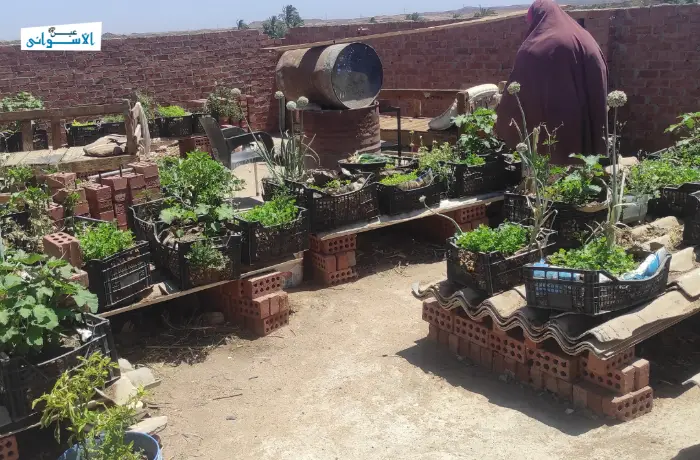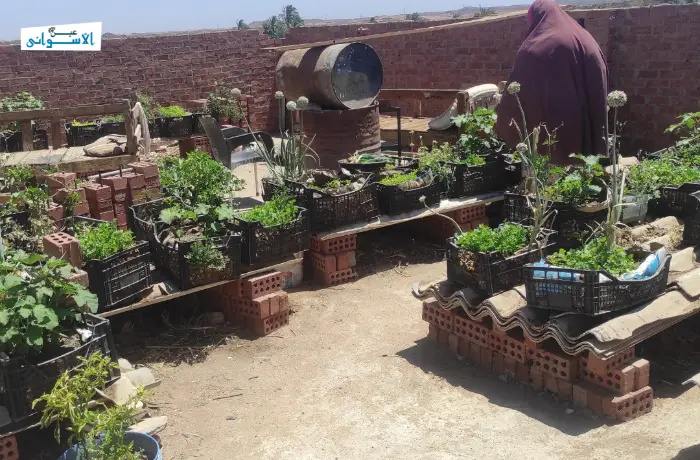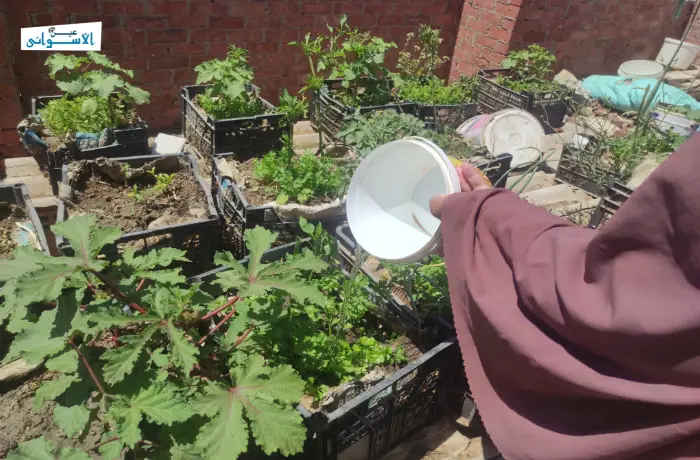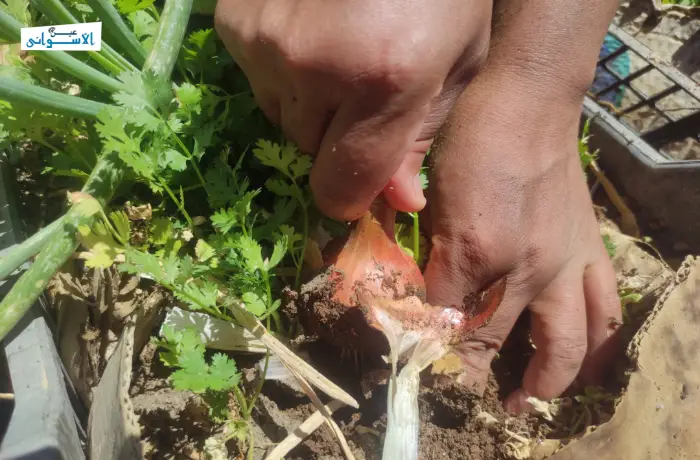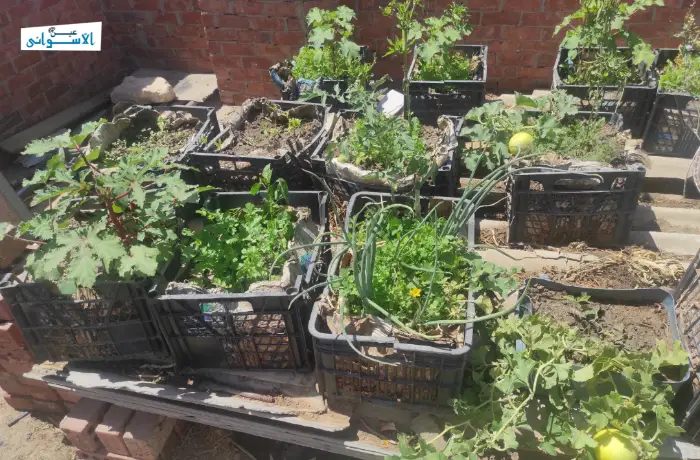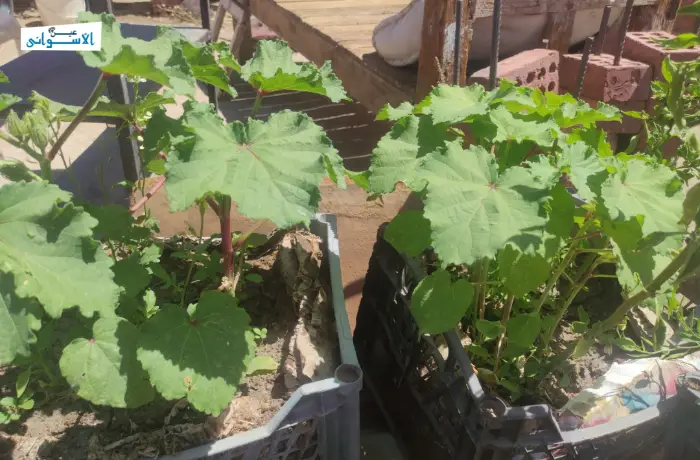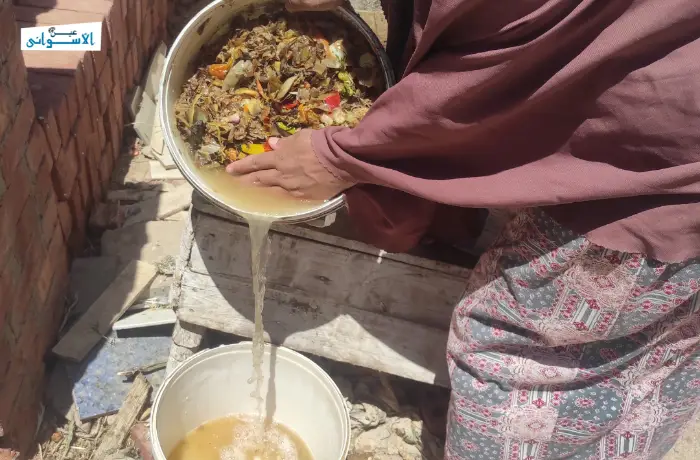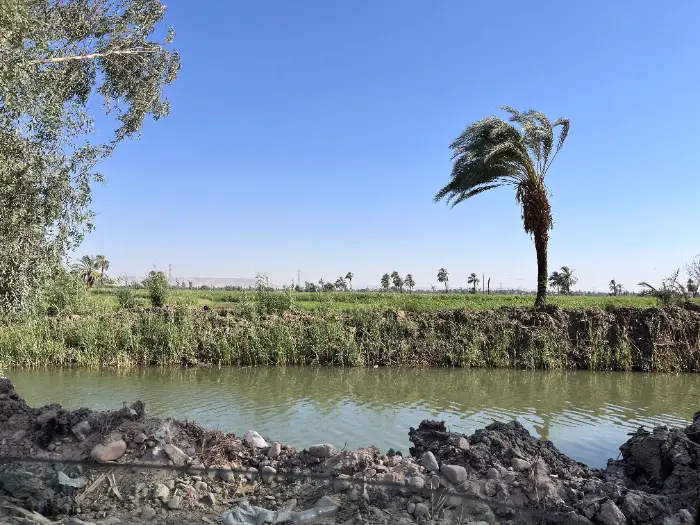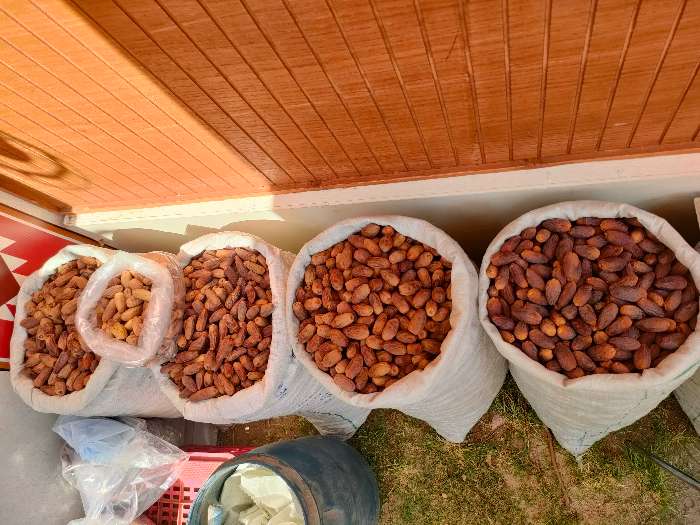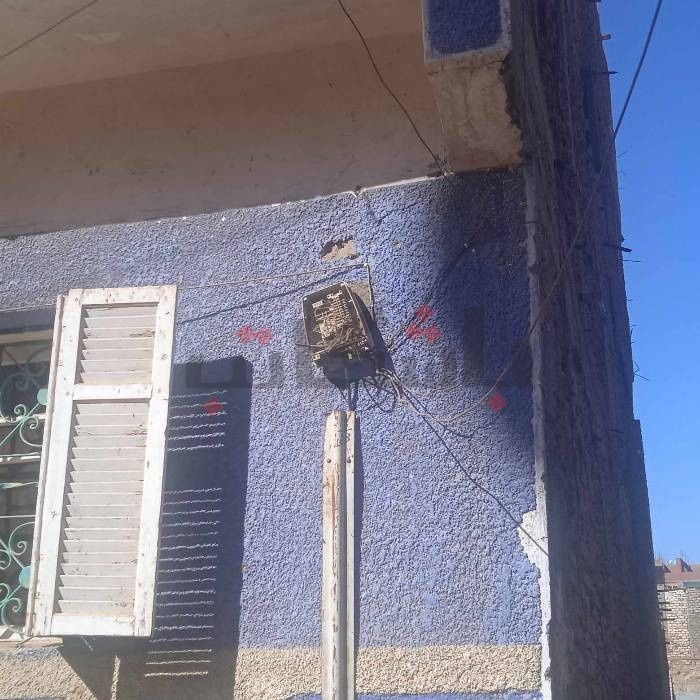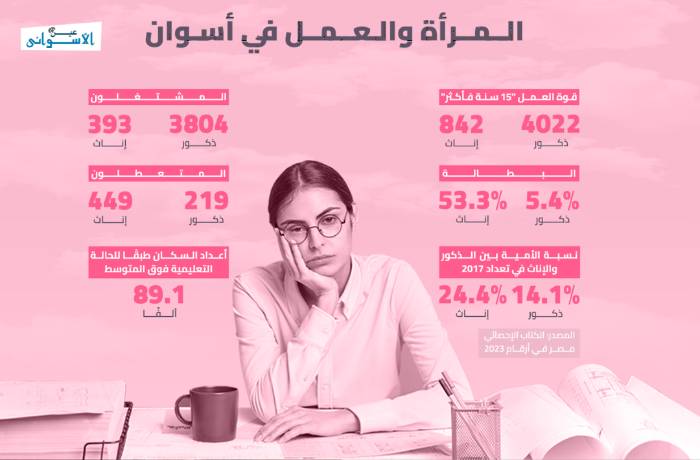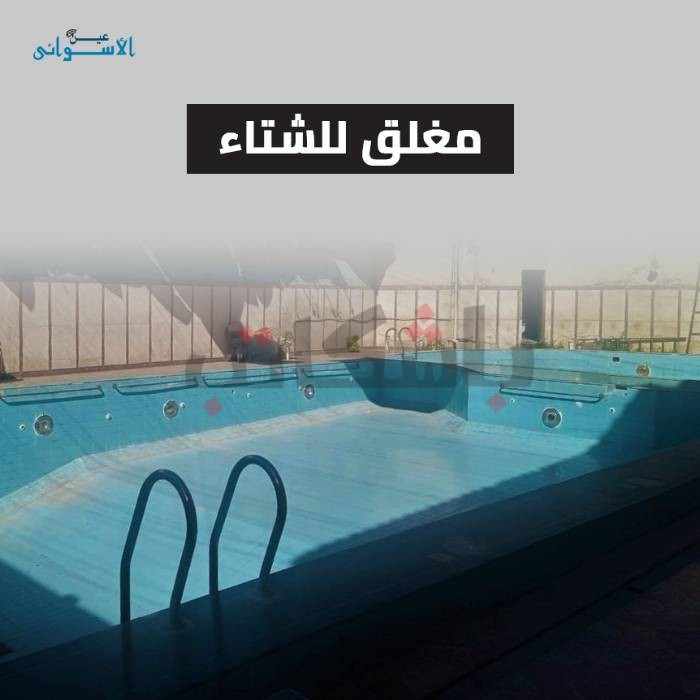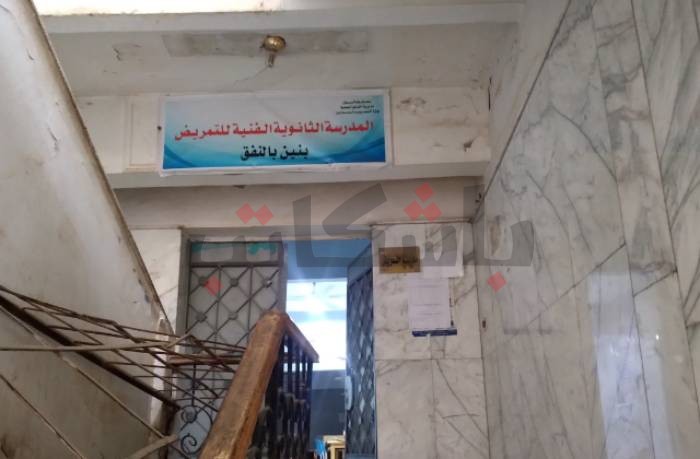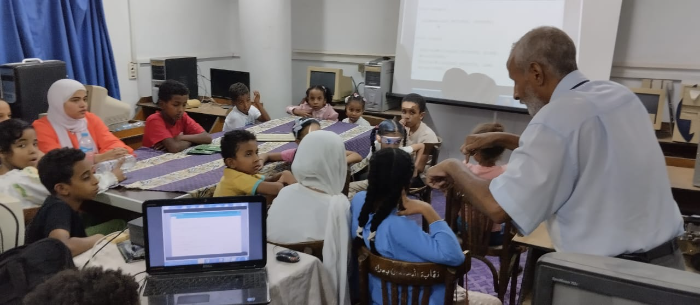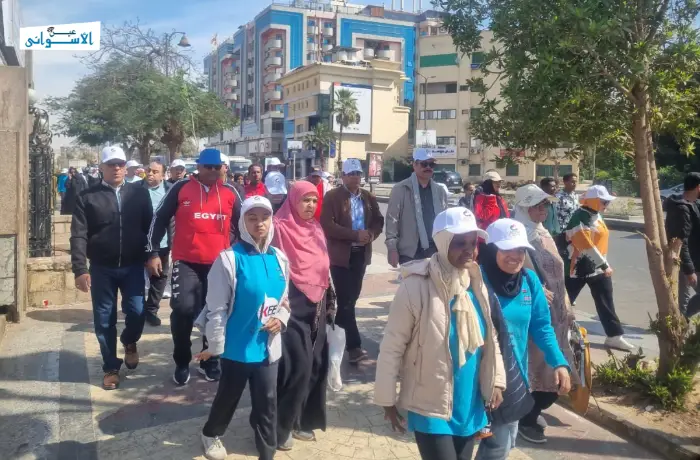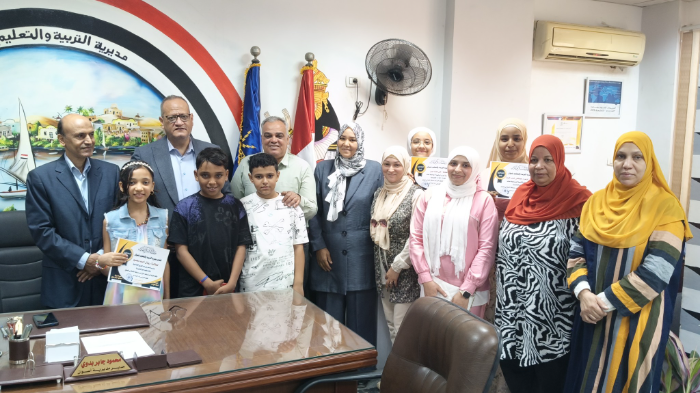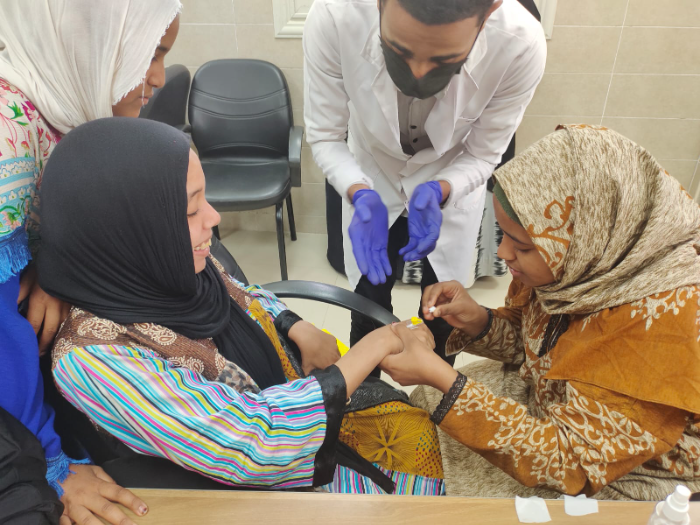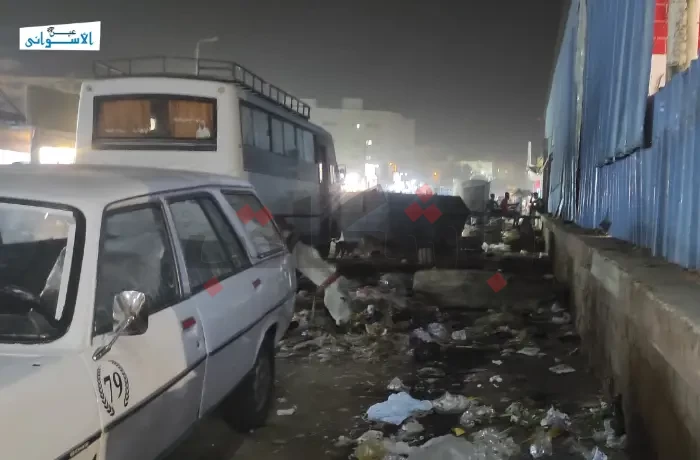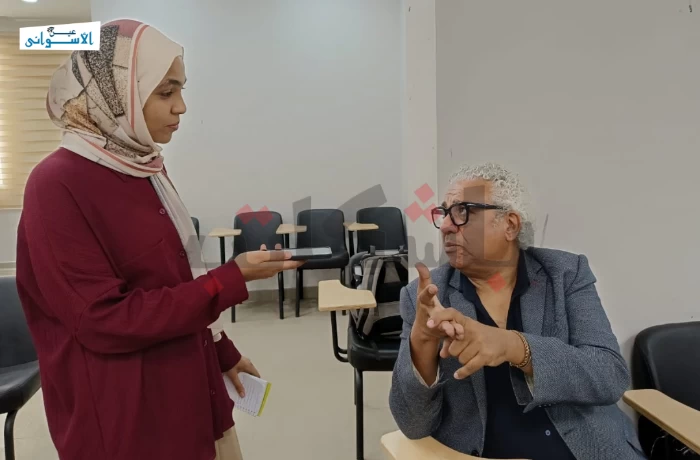Green spaces always give this sense of serenity, not to forget their role as constant air purifiers, and with the climate changes and increase in temperatures, many countries now promote home gardens for its environmental and economic benefits.
In Aswan, and with the governorate being one of the hottest cities in the world during summer 2024, the people were surprised with the government’s officials’ approach to develop some of the squares and public areas, yet with an anti-environmental approach, attacking green spaces and reducing trees numbers, the thing that would definitely double the effects of climate change and increasing temperatures.
Whereas the governorate’s developments increase high temperatures, some of Aswan’s people decided to follow another approach and go for home gardens; some decided to reclaim a small piece of land next to their homes, and others decided to use their rooftops as an area for their plants. This approach might mildly help in fighting summer’s heat, given the idea is still limited to small numbers of people.
Empty Spaces
“I always find my perfect retreat in the hours I spend among the crops and greeneries, especially during the early morning,” this is how Om Yusuf, 49-years-old housewife- expressed her love for gardening; “five years ago, before renovating our house, there was an empty piece of land in the house where we used to plant different types of vegetables, such as tomatoes, onion, garlic, corn, okra, molokhia, and chilli peppers”.
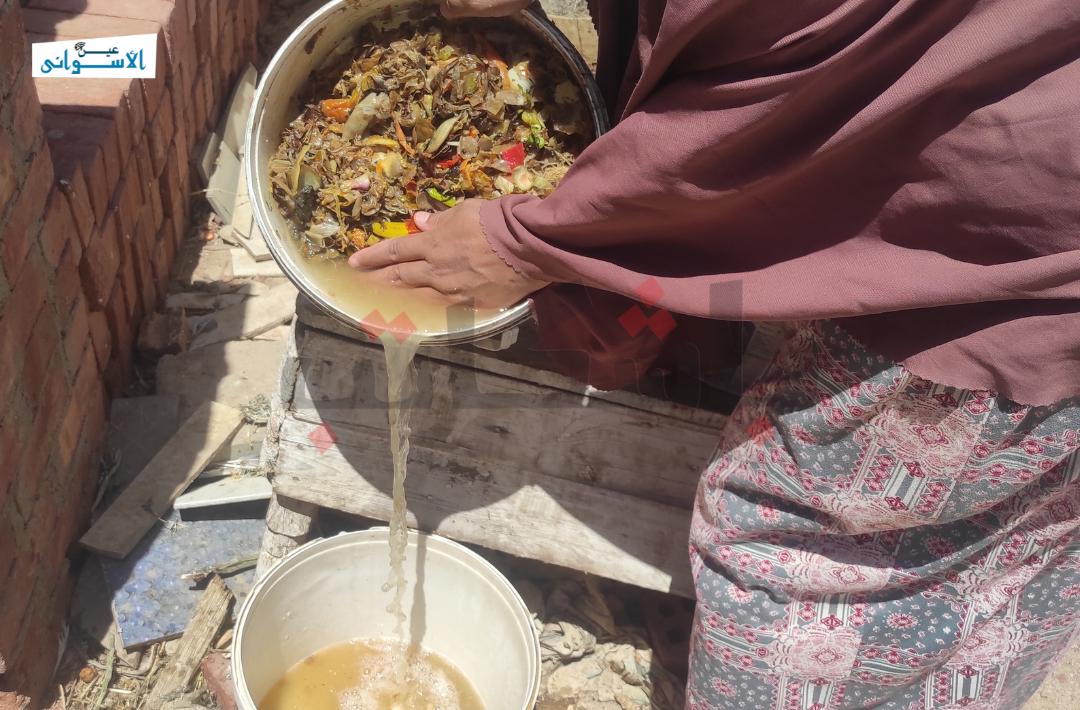
Then she adds: all of this was over when we decided to rebuild the house and expand it, giving up this piece of cultivated land and adding it to the house itself, so I missed planting anything for three years until I met one of my neighbours, she told me that her cousin uses her rooftop to plant vegetables using plastic baskets, I asked her how and she told me it was easy, but most importantly is to heed to the safety measures and keep the roof dry as much as possible, protecting it from falling down or cracking.
Plastic Baskets
“I thought about it and decided: why not? Why shouldn’t I try it? I had many plastic baskets, so I brought some clay soil and planted mint and arugula in two baskets, I elevated them using a sturdy plastic sheet, then put under each basket an empty container to collect the excess water. I was surprised to find that after a few days the plants started to grow, and with them my passion to fill the rooftop with many types of plants,” says Om Yusuf.
Om Yusuf started expanding her garden bit by bit; she bought baskets for 7 EGP per each, until she had 50 baskets with different crops in them throughout the last two years, and she aims at planting 150 baskets.
As for Sayed Ahmed, a 73-years-old Kom Ombo resident, after retiring he decided to turn his rooftop into a home garden to fulfil his passion; he started with small pots planting simple plants like mint, flowers, and cactus.
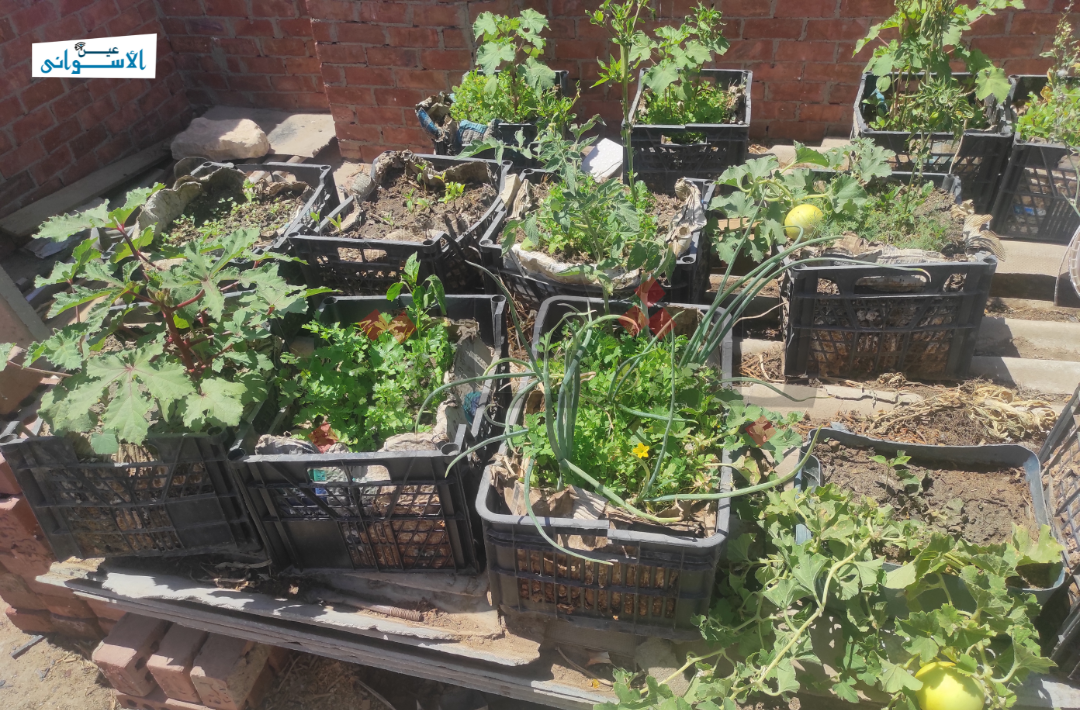
Sayed started developing this garden through buying soil and mixing it with sand, and he mentioned that when he decided to buy soil it was somehow cheap, a quarter ton pickup truck of soil cost him 250 EGP. Currently, he cultivates white and black eggplant.
Organic Fertiliser
Marwa Ahmed, a housewife, said that she has planted a 6-metres piece of land next to her house for seven consecutive years now, clarifying that the soil is sandy, but she managed to reclaim it through using poultry and livestock waste and some Nile silt.
Marwa started planting garlic and onion in winter, and okra and molokhia in summer, becoming self-sufficient in these four crops for a long time, however, two years ago, she started planting other vegetables after the rise of prices, such as coriander, molokhia, and okra, she places her plants in plastic baskets on her rooftop, making sure no water leaks from them to the roof.
Marwa added to her garden okra and molokhia, and didn’t buy any from the market, with the hopes that this would continue until the end of the season.
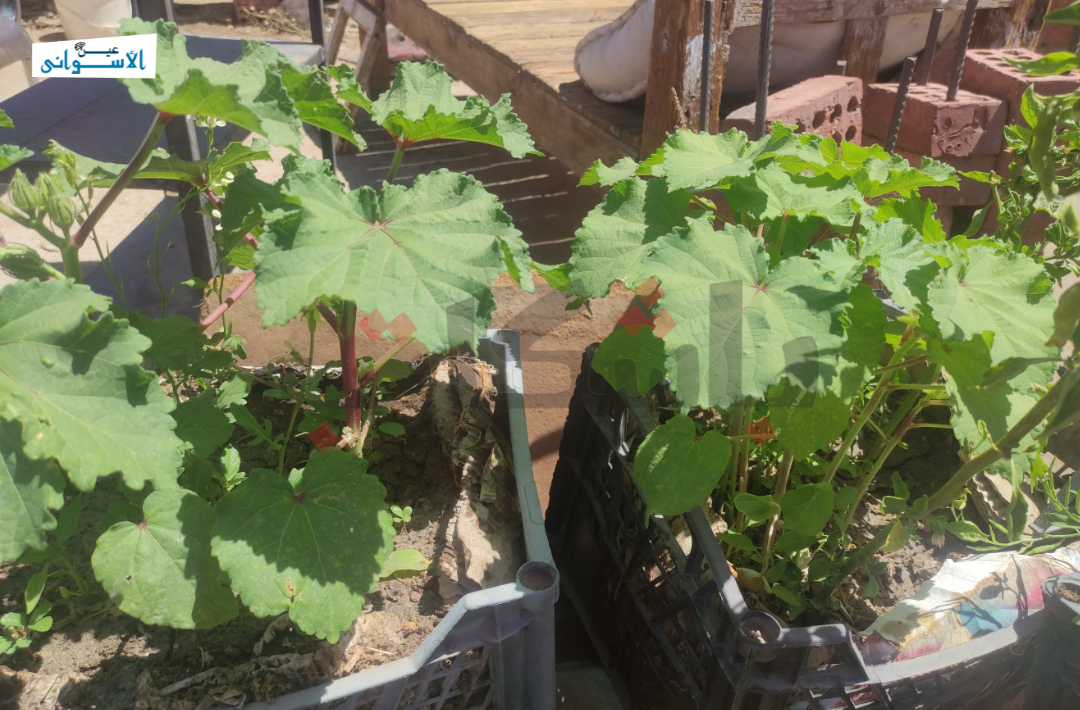
Yasmine Hussien, agricultural engineer, encourages home gardens, saying, “I believe home gardens are a good start towards self-sufficiency for individuals, especially amidst the daily rising prices, also it helps the environment providing better air quality.”
“It is possible to cultivate any land and any type of soil”, said Yasmine, adding, “if there is no land available to cultivate, individuals could always resort to rooftop gardening, with closely following safety measures by implementing a drainage system to discard excessive water, also to distribute the plants’ containers all over the roof and not place them all in one place, taking into account the excess load over the roof so as not cause any collapse or cracks in it.”
Desert Soil
Yasmine Hussien pointed out that organic fertilisers are better than chemical ones, and are more effective in benefiting the soil; chemical fertilisers are quickly washed out of the soil, whereas the organic remains for a long time, it improves the soil’s texture and properties. As for desert soil, like most of Aswan governorate lands, can be reclaimed and cultivated through using organic fertilisers, making the soil more cohesive and able to retain water.
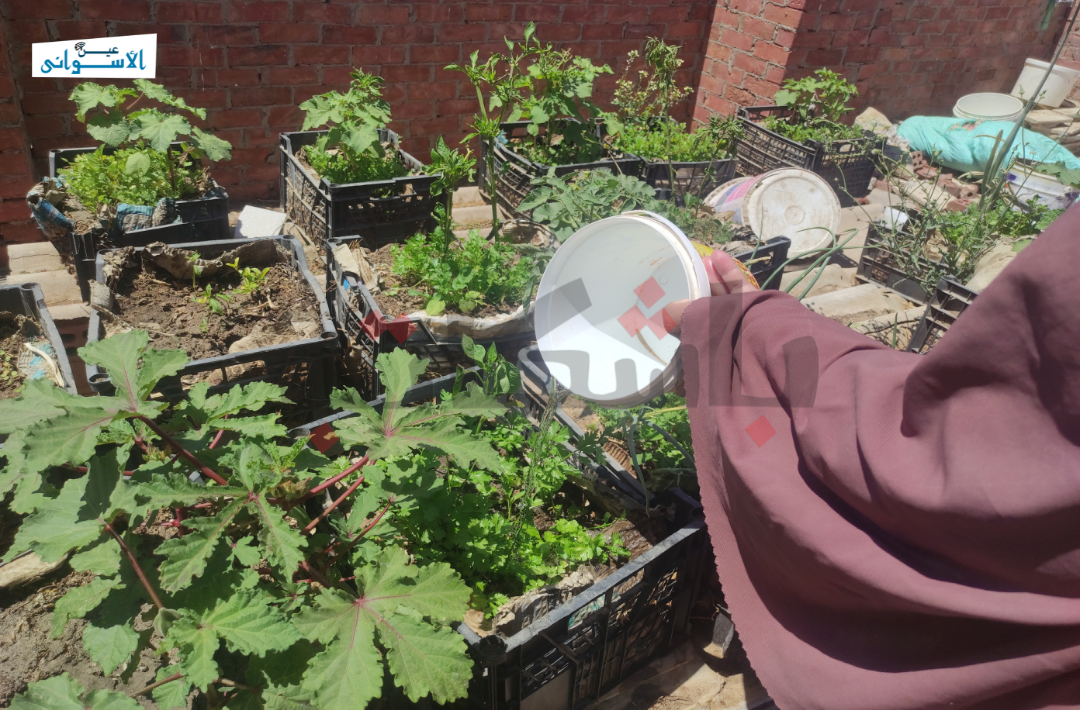
In 2019, Om Habiba Foundation launched an initiative for rooftop gardening in Aswan. Ain Al-Aswani met with Eng. Mohamed Gamal, Senior Program Officer for Agriculture, Food Security and Climate Change at the foundation, who ensured the foundation’s keenness on encouraging home gardens via initiatives; such as Women in Agriculture initiative, which was launched in 2019 and lasted for three years, during which 612 home gardens and 120 rooftop gardens were implemented. The initiative continued for another three years under the name “She Plants”, aiming at implementing 400 home gardens and 50 rooftop gardens.
Gamal finished his words confirming that the initiative aims at helping families save expenses, as rooftop gardening projects save 15% to 20% out of the family’s main income.
